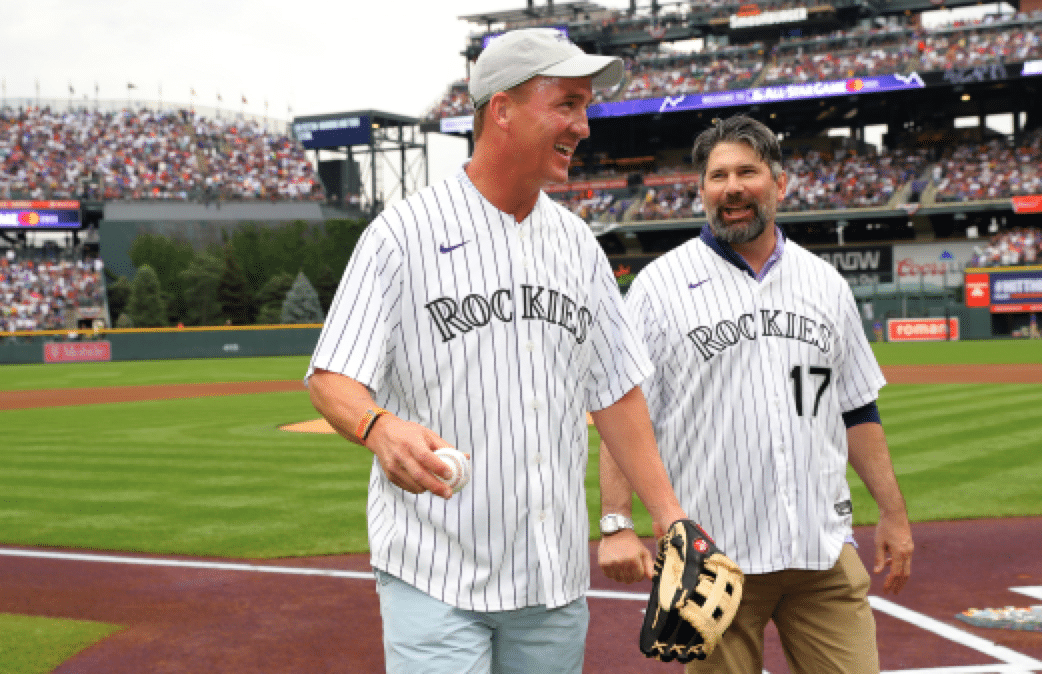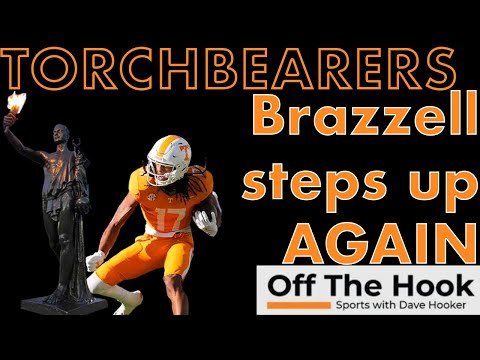Former Tennessee offensive coordinator David Cutcliffe had one swift reaction when Todd Helton was named to the Baseball Hall of Fame this week, his former college coach cried.
Cutcliffe, who is now an assistant to the SEC Commissioner, wept for more than one reason. First, he’s still very close to Helton, who starred as a baseball player at Tennessee and also played some football from 1992 to 1995. However, there’s another reason Cutcliffe got emotional.
One of the first quarterback gurus, he loved baseball before football got in the way. So when Helton finally got that call this week, the emotions were deep. Cutcliffe said he was “cottonmouth” before he heard the good news because he was so nervous that Helton would be overlooked by baseball writers, who had passed on him five previous times for induction. Helton is now known as a Hall of Famer, but Cutcliffe swears there’s another title he’d prefer.
“Here’s what I can tell you without a shadow of a doubt about Todd Helton,” Cutcliffe said. “The thing that will please him the most talking to a former teammate won’t be that ‘Hey, man. Wow. You ended up a Hall of Famer.’ What will thrill Todd the most is when someone comes up to him and says, ‘Hey man, you were the best teammate I ever had.’ And guess what? That will be said. And I’m sure that ole’ No. 16, slash 18, would say that right now about his buddy Todd. What unique relationship.”
Of course, Cutcliffe is referring to another Hall of Famer, former Tennessee and NFL star Peyton Manning, who Helton helped mentor when he was forced into the starting role in 1994 after Jerry Colquitt suffered an season-ending injury in the first quarter of the season-opener against UCLA. While it seems hard to imagine. Manning was once a wide-eyed freshman when Helton was competing for playing time that season.
“Todd played that role,” Cutcliffe said of mentoring Manning. “Todd was not a good baseball player collegiately. He was a great player. He could share with Peyton. Talent certainly is a necessity for great (but) great is not reached by talent alone.”
Cutcliffe said Helton’s preparation and ability to focus were traits that Manning, in part, learned from Helton.
“Peyton was very interested in Todd from the beginning,” Cutcliffe said. “This unique guy that could give or take football, but still knew what to do. Todd had great vision in the pocket. I still think he sees in slow motion, which I think great hitters do. There’s no question Todd Helton influenced Peyton, not necessarily in the football parts of it, but in the “great” department and the kind of passion and focus that (it takes).”
Manning and Helton have something else in common for those that have covered them. Neither lacks confidence in a crowd, but neither tend to come across as arrogant.
“People confuse those way too often,” Cutcliffe said. “That’s a good observation on your part. There was never an arrogance in either one of them, even when the accomplishments were phenomenal, there wasn’t an arrogance in Todd Helton (when he was selected for induction).
“I think Peyton said it when he retired, and Todd was the same basic way. Nobody outworked them. That’s confidence. Arrogance is talking yourself into thinking you’ve done something special or you’re special. Confidence is knowing what you’ve done.
Cutcliffe should be a confident man. He has coached quarterbacks to the highest level, was a part of national championship at Tennessee in 1998 and had a standout career – in football. Still, he was brought to tears by baseball.
“Oh, I cried,” Cutcliffe said. “I hate to admit that publicly, but I cried.”
There were tears of job, but perhaps some tears of jealousy as well for the diehard New York Yankee fan.
“It was my dream,” Cutcliffe said of playing baseball. “I’ll be honest with you, at 16, if somebody had told me I wasn’t going to pitch for the Yankees, I would have bloodied their mouth before the sentence was finished.”
So while Helton played a leadership role for Manning, what was Cutcliffe trying to teach each of his players, as well as those that came before and after him?
“I think true love,” Cutcliffe said. “I think really understanding that somebody can really, truly love you for, nothing about what you do, but for who you are.”









